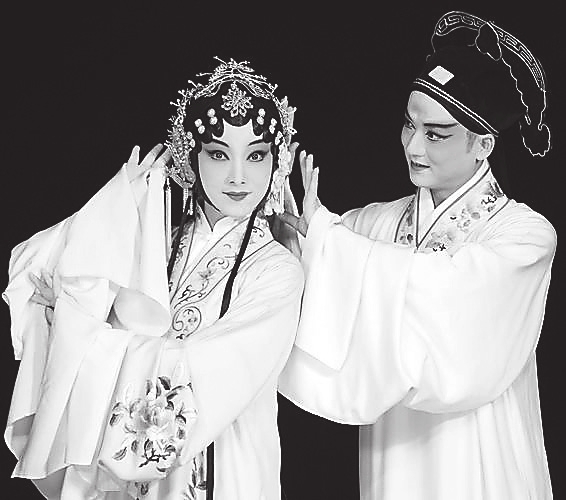

Zide Guqin Studio Zide Guqin Studio, a Shanghai-based ensemble with members wearing ancient Chinese costumes while playing traditional Chinese instruments, will perform at a concert. Its sound seems to evoke the very essence of China. Its soothing notes seem to fade into the distance, beyond rivers and snow-capped mountains. But the traditional Chinese instruments, such as the guqin (the seven-stringed Chinese zither), with more than three millennia of history, are finding a new lease of life as their strings are plucked to deliver modern tunes. Members from the Zide Guqin Studio are challenging preconceptions about the instrument with harmonies redolent of the modern day. Since the ensemble’s founding in 2014, its members have been using the guqin to perform modern hit songs, including the theme songs from the British TV series “Sherlock,” the U.S. TV saga “Game of Thrones,” the Japanese anime “Doraemon” and even the popular mobile game “Honor of Kings.” The hit tunes they’ve adapted are available to the public for free and can be learned in the studio’s training sessions, online and offline, encouraging people to join them to explore the variations. The studio’s music videos, released on social media, have provided a feast not only for the ears but also for the eyes as well. Their costumes, makeup and hairstyles all seek to reproduce the distinctive fashions of that dynastic period. Against a light amber backdrop, the arrangement of musicians and props in the frame, together with the euphonious notes flowing out from the musical instruments, blend well together. These visually and acoustically pleasing music videos have garnered nearly 20 million views on the Chinese video-sharing platform Bilibili, and reached large audience overseas, with one video notching up around 15 million views on YouTube. Tang Bin, the artistic director for the ensemble, said that the most time-consuming part for producing a stylish guqin music video is not the preparation of the setting, clothing or filming, but transcribing and arranging a melodious piece for the guqin and the other traditional instruments that are paired with it. In addition to traditional Chinese instruments, such as the guzheng (a Chinese zither), pipa (a four-stringed Chinese lute) and xiao (a vertical bamboo flute), Tang has also added African drums in his works. The drums are made from pottery jars and are suited to play music that evokes a sense of mystery. Time: 8 p.m., Nov. 17 Tickets: 180-680 yuan ‘The Peony Pavilion’ The Jiangsu Suzhou Kunqu Opera Theater will present “The Peony Pavilion” written by Tang Xianzu during the Ming Dynasty (1368-1644) and adapted by modern writer Pai Hsien-yung in 2004. The performance focuses on the love story between Du Liniang and Liu Mengmei. On a fine spring day, Du, the daughter of an official, takes a walk in the garden, where she falls asleep. In her dream she encounters a scholar, identified later in the play as Liu, whom in real life she has never met. Liu’s bold advances start off a flaming romance between the two and it flourishes rapidly. Du becomes preoccupied with her dream affair and her lovesickness quickly consumes her. Unable to recover from her fixation, Du wastes away and dies. The king of the underworld adjudicates that a marriage between Du and Liu is predestined and Du ought to return to the earthly world. Du appears in Liu’s dreams. He, now in the same garden where Du had her fatal dream, realizes that Du is the woman who appeared in his dreams. Liu then agrees to exhume her upon her request and Du is brought back to life. Liu visits Du’s family but he is imprisoned for being a grave robber and an impostor. The ending of the play follows the formula of many Chinese comedies. Liu narrowly escapes thanks to the arrival of the imperial scholar examination results in which Liu has topped the list and thus the emperor pardons all. Kunqu opera evolved from the local melody of Kunshan in Jiangsu Province, and subsequently came to dominate Chinese theater from the 16th to 18th centuries. Kunqu has distinctive features in its musical performance. It is quite mild, exquisite, sentimental and melodious. The libretto usually focuses on a story of romantic love. In 2004, Pai’s edition of “The Peony Pavilion” rejuvenated the traditional staging. He hoped that his rendition would attract young viewers to the art form. Time: 8 p.m., Nov. 23 Tickets: 80-680 yuan Booking: WeChat account “深圳滨海演艺中心” Venue: Bay Opera of Shenzhen, Bao’an District (宝安区深圳滨海演艺中心) Metro: Line 5 to Baohua Station (宝华站), Exit A(SD News) | 
